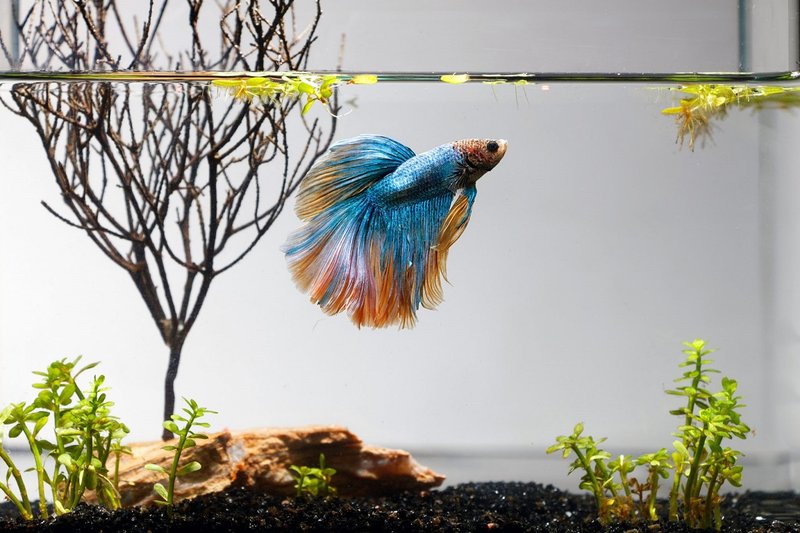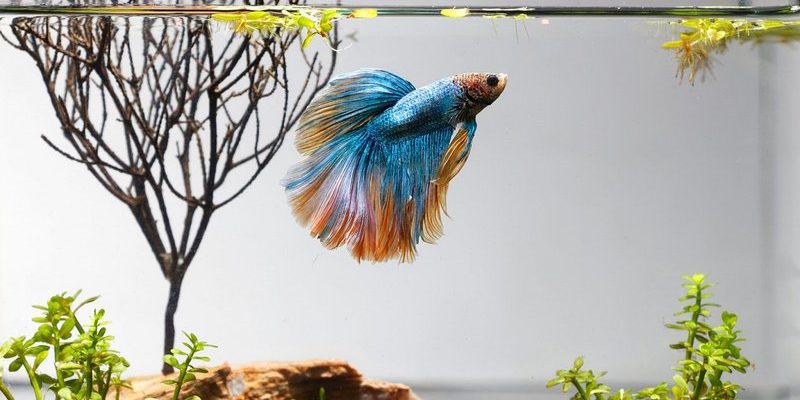
You might be wondering what exactly it takes to keep your Betta happy and healthy. Is it all about the water quality, or do they need special food, too? Here’s the thing: caring for a Betta involves creating an environment that mimics their natural habitat. Let’s dive in and explore the essentials of how to care for a Betta fish in a freshwater aquarium.
Setting Up the Perfect Aquarium
When it comes to a Betta’s home, size matters. A tank of at least 5 gallons is ideal for these fish. While some might suggest they can thrive in smaller bowls, a larger tank allows for a more stable environment and offers your Betta space to swim and explore. You wouldn’t want to live in a cramped room, right?
Make sure to include some hiding spots in the aquarium. Use decorations like rocks, plants, or caves—these give your Betta places to feel secure. Just keep an eye out for any sharp edges that could tear their delicate fins. Also, consider using a soft substrate, like sand or fine gravel. It’s both comfortable for the fish and easy to clean.
Water quality is another vital aspect. Betta fish need clean, filtered water to thrive. Avoid harsh chemicals and make it a habit to do partial water changes weekly. Test the water regularly for pH levels; Betta fish prefer a pH of around 6.5 to 7.5. If you’re feeling extra handy, investing in a good water conditioner can also help remove harmful toxins.
Heating and Lighting Considerations
Betta fish are tropical creatures, so they like it warm. Keeping the water temperature between 76°F and 82°F is ideal. You can achieve this by using a reliable aquarium heater. Just like you wouldn’t want to shiver in a cold room, your Betta shouldn’t have to endure chilly water.
When it comes to lighting, a regular aquarium light will do just fine. However, it’s best to limit the lighting to about 8-12 hours a day to simulate natural conditions. This helps prevent the growth of algae and keeps your Betta comfortable. Here’s a quick tip: if your Betta seems to like hiding, consider adding some floating plants. They enjoy dimmer areas and will appreciate having a cozy spot to retreat.
Feeding Your Betta Fish
Feeding your Betta is where you can really shine as a fish parent! They are carnivores, so you want to choose a high-quality Betta pellet or flakes designed specifically for them. Look for food that lists fish as the first ingredient. You might be tempted to give them treats like live or frozen brine shrimp or bloodworms occasionally. It’s a great way to add variety to their diet, almost like treating them to a special meal.
When it comes to portion size, a good rule of thumb is to feed them 2-3 pellets a couple of times a day. Make sure they consume the food within 2-3 minutes to avoid polluting the water. Overfeeding can lead to health issues, much like how excessive snacking isn’t good for us.
You might be wondering what to do if your Betta seems disinterested in food. This could be due to stress or poor water quality—so take a moment to check their environment before trying something new.
Maintaining Water Quality
Keeping the water clean and healthy is a huge part of Betta care. As mentioned before, filtration is crucial. A good filter helps remove waste and toxins, creating a comfortable living space. However, keep the water currents gentle, as Betta fish aren’t great swimmers, and a strong current can stress them out.
Regular water changes are also essential. Aim for about 20-30% of the tank every week. This helps keep the nitrates in check and ensures your Betta stays in a healthy environment. You can make this part of your routine, much like cleaning your home—keeping things tidy and inviting.
In addition to monitoring temperature and filtration, check the water parameters regularly with a test kit. Keeping an eye on the ammonia, nitrite, and nitrate levels makes a big difference in your Betta’s life.
Tank Mates for Your Betta
If you’re thinking about adding companions for your Betta, it’s important to choose wisely. Some fish can be compatible, while others might create chaos in the tank. Corydoras catfish and neon tetras are often good choices because of their peaceful nature. Just avoid putting them with aggressive or colorful fish, as Bettas can be territorial and may see them as a threat.
When introducing new tank mates, make sure to acclimate them slowly. This involves floating the new fish in their bag for a while, gradually mixing some of your tank water into the bag. Take it slow, like easing into a new friendship—it takes time for everyone to feel comfortable.
You might find it helpful to have a backup plan, like a separate tank, just in case personalities clash. It’s always better to be prepared and keep your Betta safe.
Recognizing Health Issues
Monitoring your Betta’s health is crucial for a happy fish. Look out for signs of stress or illness, such as changes in color, unusual swimming patterns, or not eating. If you notice clamped fins (where the fins are held close to the body), it could indicate stress, possibly due to poor water quality.
If you suspect your Betta is unwell, act quickly! Sometimes, simple treatments like a salt bath can help, but you should also consult a vet or an aquarium specialist for more severe cases. Honestly, understanding their behavior is key. If they seem off, it’s worth investigating.
Keeping your Betta happy and healthy is all about being observant and proactive. You might even enjoy spending time just watching their captivating movements.
Final Thoughts on Betta Care
In conclusion, caring for a Betta fish in a freshwater aquarium can be incredibly rewarding. It’s about creating the right environment, providing the best food, and maintaining water quality. Beautiful to watch and interesting to interact with, Betta fish can become a delightful part of your daily routine.
As you embark on this journey, remember to be patient and adaptable. Each Betta has its own unique personality and preferences, just like us. With a little love and attention, you’ll have a thriving Betta that brings joy to your home. Enjoy your fish-keeping adventure!

